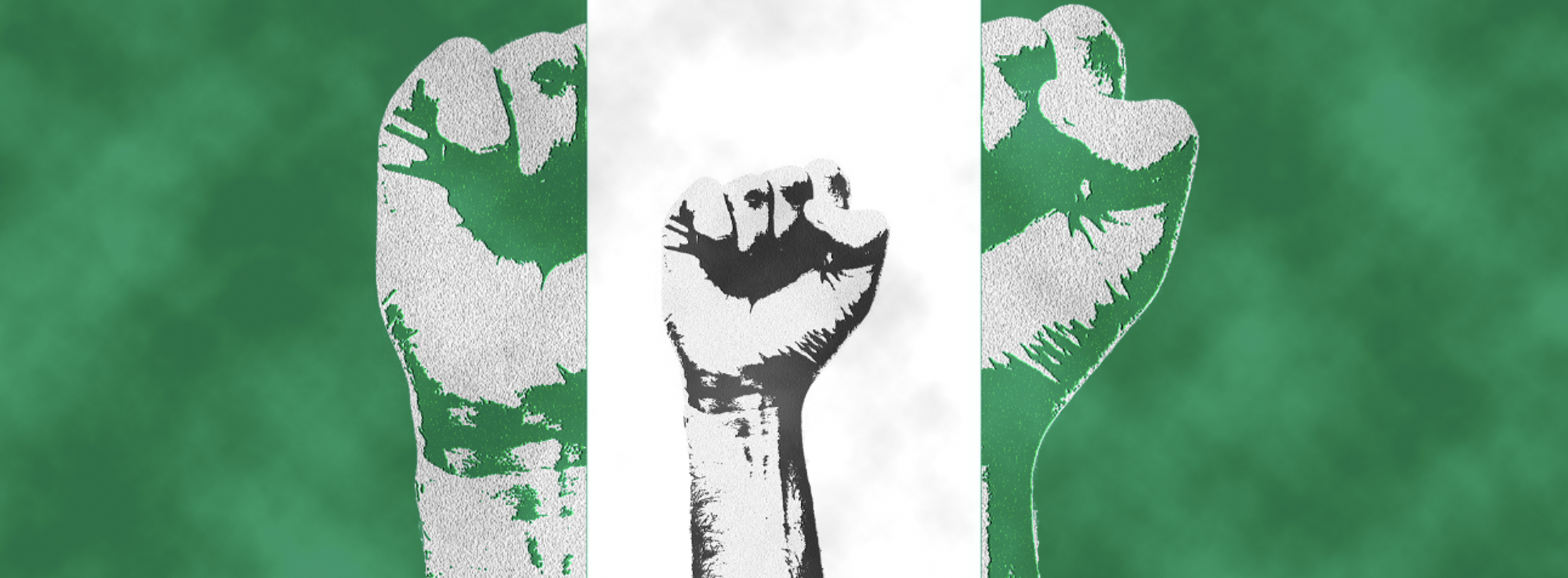
Nigerians used VPNs to influence global trending topics despite nationwide Twitter suspension and threats of prosecution
After the Nigerian federal government issued an order effectively blocking access — which the government referred to as a “suspension of services” — to Twitter on June 4, 2021, industrious users have turned to virtual private networks (VPNs) to circumvent the suspension. As a result, Nigerian hashtags trended in regions popular as exit nodes for VPN providers, including Turkey, the Netherlands, and Canada.
The government responded to these users with threats of legal prosecution. But neither the suspension itself or alleged legal risks did much to subdue Nigerian digital activism: on Saturday, June 12, some 4 million mentions of the #June12Protests hashtag accompanied widespread public demonstrations against bad governance and persistent insecurity. Ironically, in 2018, Nigerian President Muhammadu Buhari had declared June 12 a day of observance for Democracy Day.
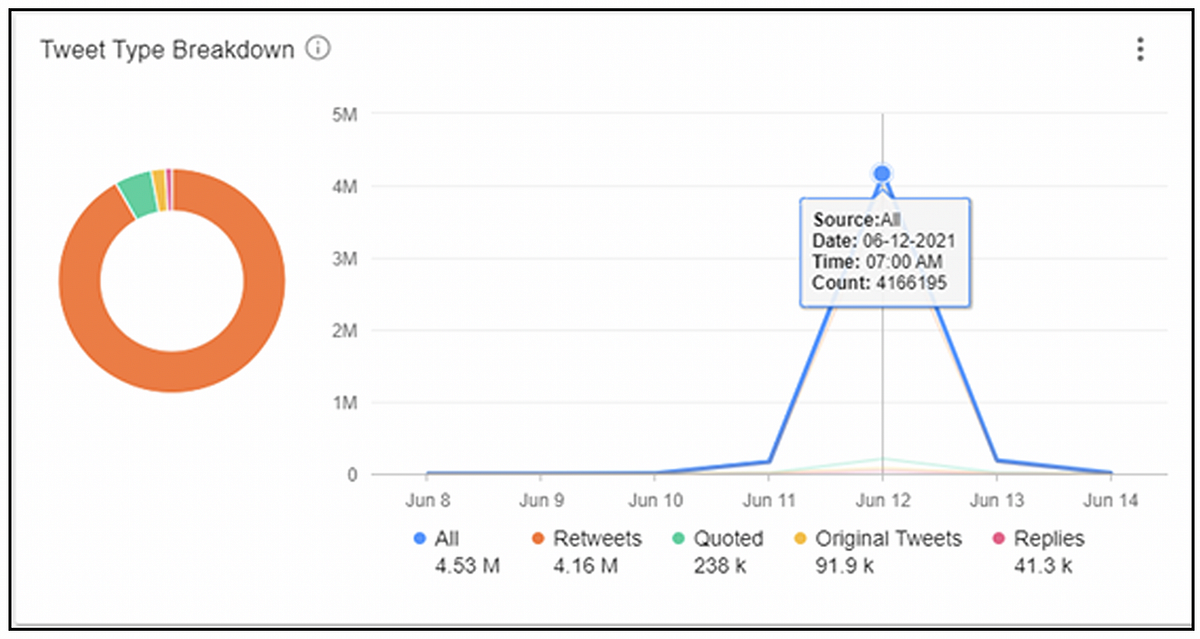
Background
On June 4, 2021, Twitter’s operations in Nigeria were formally suspended following an announcement by the Federal Ministry of Information and Culture (FMIC). In a tweet, Information Minister Alhaji Lai Mohammed cited “the persistent use of the platform for activities that are capable of undermining the corporate existence of Nigeria” as the basis of the ban.
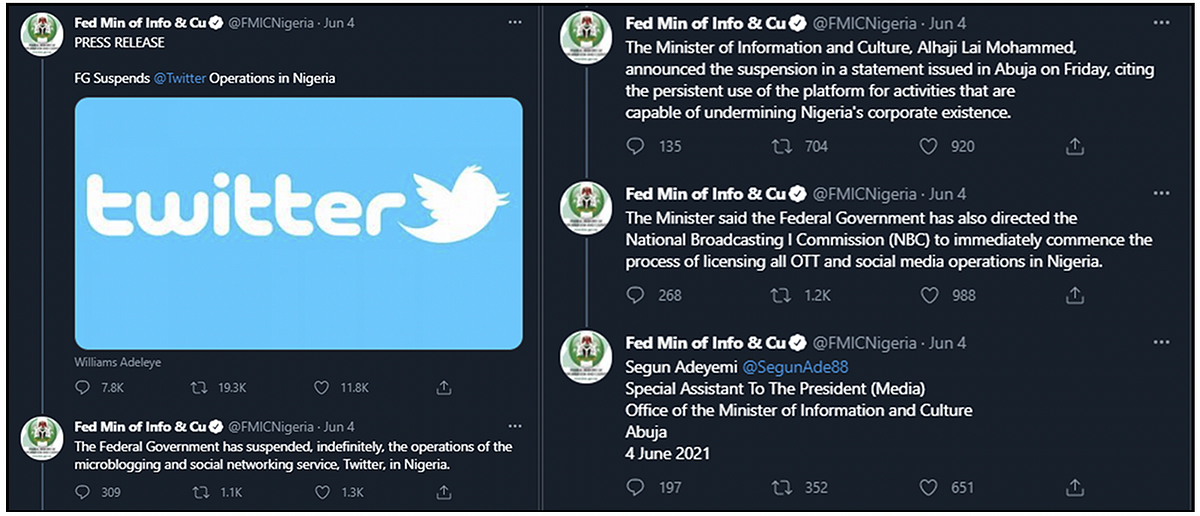
During a press conference two days prior, Lai Mohammed labeled Twitter’s mission in Nigeria as “very suspect,” accusing it of selective enforcement of its policies and of funding #EndSARS protests:
The same Twitter, during the #EndSARS program, there was funding [for] #EndSARS protestors. When people were bombing police stations, and killing policemen, for Twitter, it was about the right to protest. When a similar thing happened in the Capitol, it became insurrection. We are not going to be fooled by anybody.
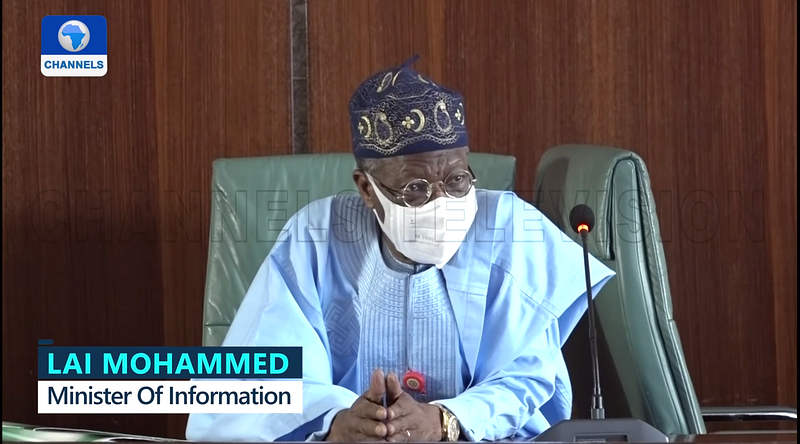
The #EndSARS protest was a massive, youth-led digital protest movement that started in early October 2020, calling for the disbandment of Nigeria’s Special Anti-Robbery Squad (SARS), known for its gratuitous violence against civilians, and culminated in the shooting of several protesters at the Lekki Toll Gate plaza on October 20, 2020.
The information ministry arranged the press conference after Twitter removed a tweet and briefly removed President Buhari’s account when he published a tweet suggesting those responsible for damaging government infrastructure would face military reprisals.
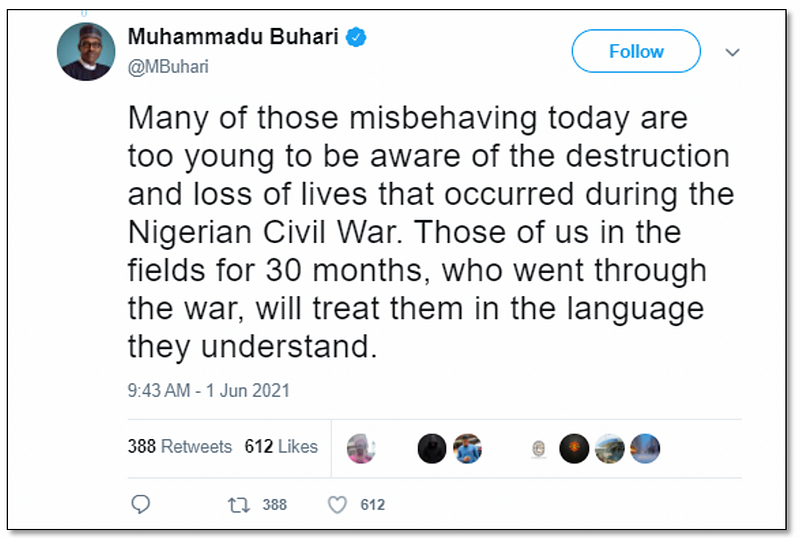
In response to the nationwide suspension of the platform, Twitter said it found its suspension “deeply concerning” and later engaged with the Nigerian government in talks to resolve the dispute.
Suspended animation
The government implemented the Twitter suspension through an instruction to the Association of Licensed Telecommunication Operators of Nigeria (ALTON), the umbrella body for telecommunication network providers in Nigeria, for its members to suspend access to Twitter. The instruction came from the Nigerian Communications Commission.
Intrepid social media users, however, turned to VPNs to get around the suspension. A VPN enables users to protect their identity and online behavior, in essence cloaking the web traffic sent to and from the user’s computer. An outside observer trying to take a peek at the traffic, or trying to obstruct traffic to a specific website such as Twitter, would only see encrypted data being sent to and from the VPN provider. It also allows the user to spoof their location to one of several “exit nodes,” as VPN servers based in a different country would treat that user as if they were based in that country.
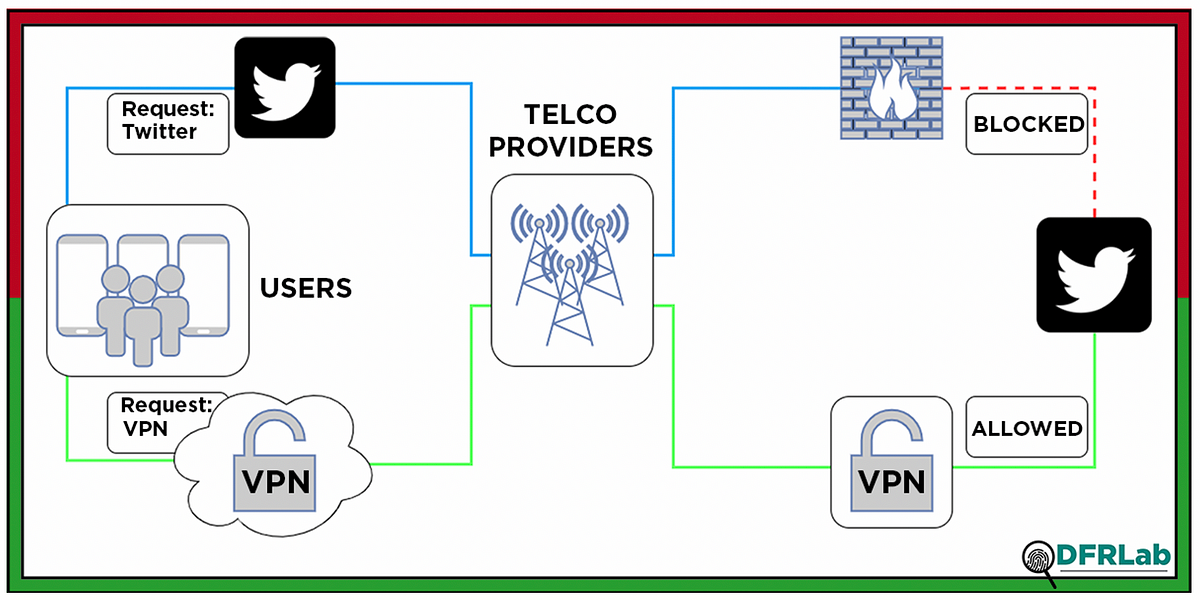
Google Trends showed a significant spike in user searches originating in Nigeria for “VPN” and “VPN for Twitter” on June 4 and 5. The last time such a prominent increase in searches for these terms were seen was on October 21, 2020, the day after the Lekki Toll Gate shooting. At the time, social media users feared reporting on the shooting would trigger a similar disruption to social media services.
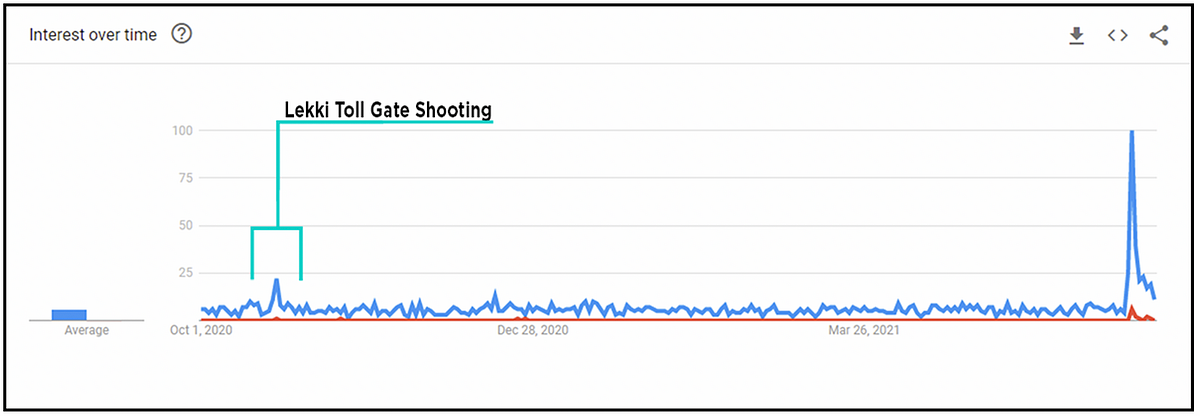
This allowed many Nigerians to use Twitter despite the ban. The day after the announcement of the ban on June 4, VPN demand surged by over 1,400 percent. Harold Li, Vice President of ExpressVPN, reported an increase in Nigerian traffic of 250 percent on Saturday, June 6 alone. The switch to VPNs was so emphatic that from June 5, Nigerian topics began trending in countries popular as “exit nodes” for VPNs. This was observed for Canada, the Netherlands, and Turkey as Nigerian users exploited VPNs to organize a grassroots protest movement.
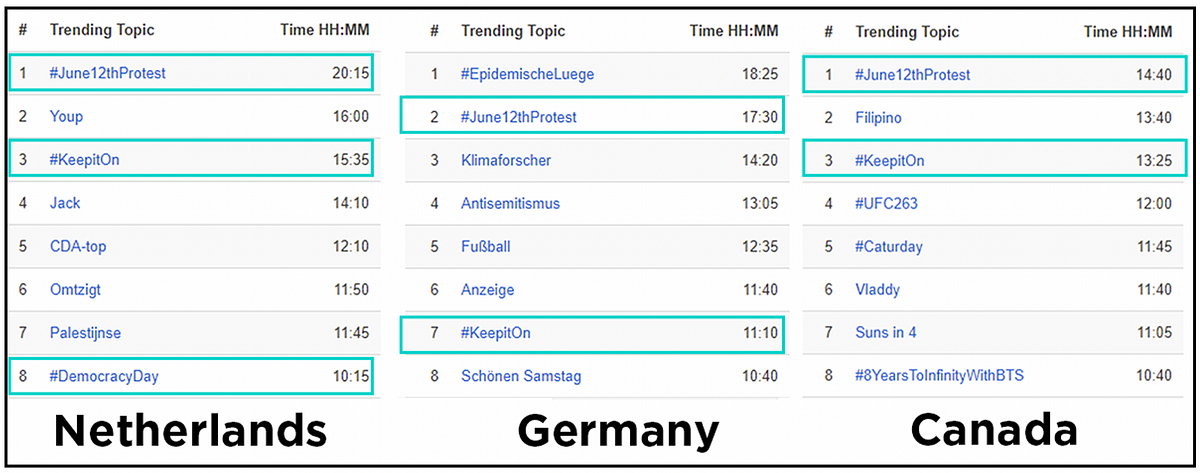
Legal challenges
In response to the surge in VPN use, Nigerian Attorney General Abubakar Malami issued a statement via his Facebook page on June 5, 2021, in which he had directed the “immediate prosecution of offenders of the Federal Government ban on Twitter operations in Nigeria.”
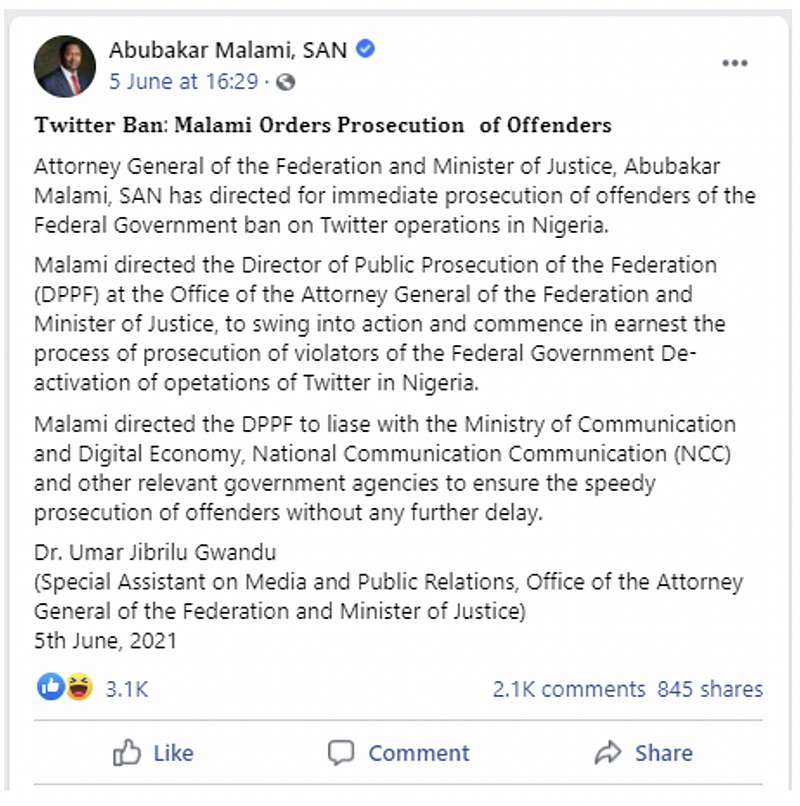
Under the pretext of the ban, however, the exact nature of the “offense” Nigerian Twitter users would be committing is unclear. The earlier statements by the information ministry and the instruction to Nigerian telecom providers suggested that only access to Twitter’s services were suspended. Neither of these statements suggested that the use of Twitter itself had been criminalized.
There is also the likelihood that prosecutions for merely using Twitter could fail constitutional muster. Section 39(1) of the Constitution of the Federal Republic of Nigeria expressly enshrines freedom of expression as a fundamental right. Although section 39(3) provides some scope to limit this right in the form of any law that is “reasonably justifiable in a democratic society.” Similarly, section 174 of the Nigerian Constitution only confers on the attorney general the powers to institute and undertake criminal proceedings in respect of an existing act of the national assembly. Both of these provisions would require the Nigerian legislature to pass or amend legislation that would criminalize the use of Twitter first, a shaky proposition based on Nigerian courts’ previous rulings where freedom of speech is concerned.
Additionally, Nigeria is a signatory to both the African Charter on Human and People’s Rights and the United Nations Declaration of Human Rights, both of which protect freedom of speech as a fundamental human right.
Nigeria’s suspension of Twitter access did little to deter its citizens from accessing the platform to make their opinions known and perform their digital activism. Instead of suppressing digital activism, the use of VPNs has made topics previously confined to Nigerian trending lists crop up globally, and to a much broader audience.
Jean le Roux is a Research Associate, Southern Africa, with the Digital Forensic Research Lab.
Hans Hanley is a research intern with the Digital Forensic Research Lab.
The DFRLab team in South Africa works in partnership with Code for Africa.
Cite this case study:
Jean le Roux and Hans Hanley, “Nigerian Twitter users flock to VPNs amid dubious legal threats,” Digital Forensic Research Lab (DFRLab), June 24, 2021, https://medium.com/dfrlab/nigerian-twitter-users-flock-to-vpns-amid-dubious-legal-threats-395101f95cd3.
Follow along for more in-depth analysis from our #DigitalSherlocks.

